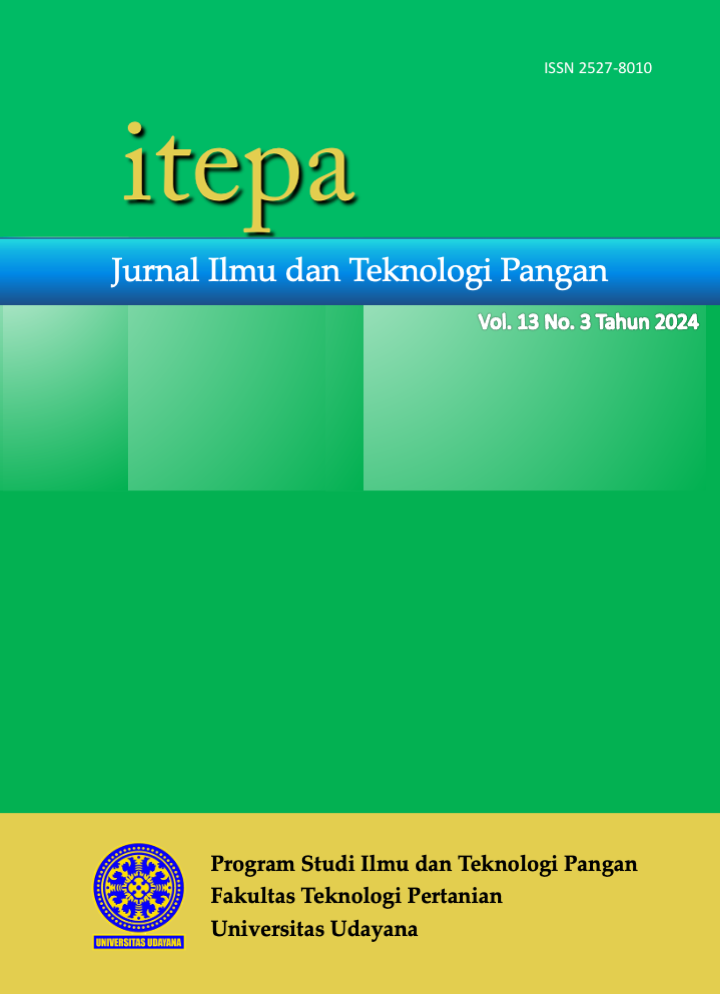Studi Higiene dan Sanitasi Lawar Bali Melalui Analisis Cemaran Escherichia Coli Dan Staphylococcus Aureus di Obyek Wisata Sangeh
Abstract
Lawar is a traditional Balinese food made from minced meat, vegetables and Balinese spices. Meat is a raw material that has high water and protein content so it is susceptible to contamination by Escherichia coli and Staphylococcus aureus. This research aims to determine the hygiene and sanitation of traders who sell Lawar and determine the contamination of E. coli and S. aureus in Lawar sold at the Sangeh Tourism Destination Area. This research used a descriptive design presented in table form with sampling using survey techniques and total sampling. The results of this study are presented in the data tables and analyzed descriptively. Parameters observed were total microbes, Coliform, E. coli, and S. aureus. The results showed that 100% of Lawar did not meet the total microbial requirements for processed meat with heat treatment (< 1 x 106 colonies/g), 100% of Lawar was positive with Coliforms, 25% Lawar had met the requirements of E. coli in processed meat with heat treatment (< 1 x 101 colonies/g), and 50% Lawar had met the requirements for S. aureus in processed meat with heat treatment (< 1 x 104 colonies/g). Sanitary practices at Lawar seller restaurants in the Sangeh Tourist Attraction Area 100% of producers buying raw materials at local markets, 87.5% of raw materials are processed immediately, 12.5% ??of raw materials are not used immediately, 75% of producers process the raw materials of Lawar in the morning and 25% on the evening before the sale, 100% of traders took Lawar without using gloves, the seller's cleanliness and personal hygiene were not good.
Keywords: Lawar, E. coli, S. aureus, hygiene and sanitation





